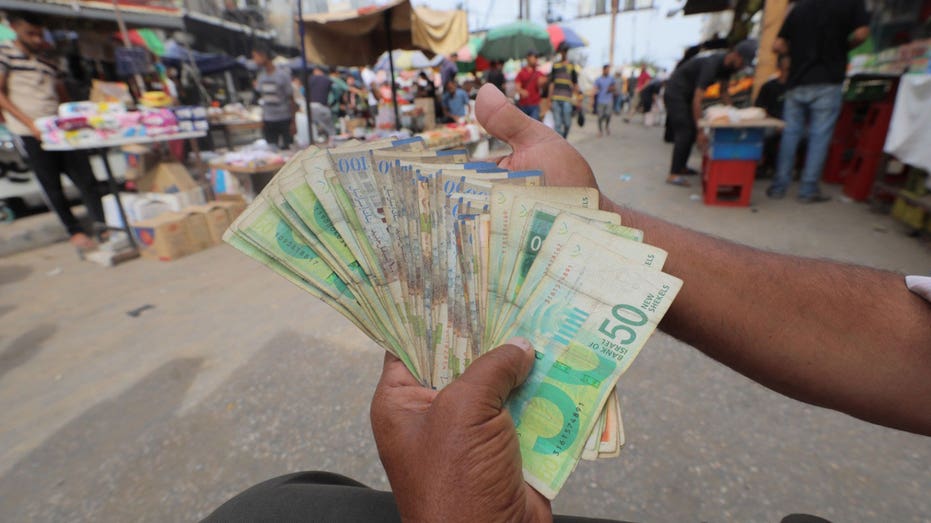UK Humanitarian Aid to Gaza Under Scrutiny After Alleged Document Links Assistance to Hamas-Controlled Ministry
U.K. denies Hamas links in Gaza aid program amid watchdog's warning and calls for transparency

A recently uncovered United Kingdom government document has reignited debate over the oversight of British-funded humanitarian aid to Gaza, raising alarm that officials were aware of potential risks that aid might inadvertently benefit Hamas, the Islamic militant group that governs the territory. While U.K. authorities have issued firm denials, a growing chorus of critics argue that troubling questions remain regarding the integrity and transparency of aid distribution channels.
The document in question, dated November 2022, details the U.K.'s humanitarian approach in the occupied Palestinian territories and references a UNICEF-administered cash assistance program. The initiative, coordinated with the Ministry of Social Development (MoSD) in Gaza, was designed to provide much-needed support to vulnerable families. However, according to watchdog group NGO Monitor, the MoSD in Gaza is functionally controlled by Hamas, a proscribed terrorist organization under British law. This indirect connection, the group warns, could mean that U.K. taxpayer funds are at risk of diversion.
In the leaked document, officials apparently flagged a significant “reputational” risk, indicating apprehension about public backlash should these links become publicly known — rather than focusing solely on the legal ramifications of supporting a designated terror group. Legal experts and policy analysts emphasize that the distinction between reputational and legal risks underscores a deeper unease within diplomatic circles on the sensitive nature of humanitarian aid in conflict zones such as Gaza.
Anne Herzberg, legal advisor for NGO Monitor, underscored that the U.K. government clearly acknowledged the risk that funds might reach Hamas, but appeared more concerned about how such revelations would be perceived by the public than about the actual consequences of potentially financing a terrorist organization. Herzberg pointed out further inconsistencies, including a recent UNICEF update highlighting its "strengthened partnership" with the Gaza-based MoSD — a department reportedly led by Ghazi Hamad, a senior Hamas figure sanctioned by the U.S. Treasury this year.
For its part, the U.K.’s Foreign, Commonwealth and Development Office (FCDO) has categorically rejected allegations that government funds reached Hamas or any associated agencies in Gaza. In an official statement, it affirmed that the UNICEF program was coordinated with the Ministry of Social Development in Ramallah, which is under the Palestinian Authority, and not with its Gaza counterpart. British officials insist that all funding was channeled directly to civilian recipients and that robust due-diligence processes are in place to track aid allocations.
Despite these assurances, watchdog groups point to conflicting evidence. In its March 2024 report, UNICEF detailed that over 540,000 Gazans had benefited from emergency support since last October’s violence, crediting cooperation with the Gaza-based MoSD for ensuring targeted aid distribution. Critics contend that this partnership introduces ongoing uncertainty over whether resources have been effectively shielded from Hamas's influence. They allege that such loopholes may have contributed to Hamas’s ability to stockpile supplies, fund military infrastructure, and even profit from a burgeoning black market during the ongoing conflict.
Those concerns are echoed by international investigators, who have documented that the Gazan MoSD is overseen by senior Hamas leaders, and that at least one official, Mohammed Al-Araeer, has publicly praised terrorist acts online. Further complications come from revelations that Hamas operatives with British citizenship have established well-funded charitable organizations in the U.K., forming a shadow network capable of raising millions annually, some of which allegedly finds its way to the group’s military operations.
Regional security experts warn that Britain has become a central hub for Hamas’s fundraising activities, even after the October 7 massacre that ignited renewed hostilities across the region. The situation is compounded by similar anxieties over other United Nations agencies operating in Gaza, raising broad questions about the efficacy of international oversight. Anne Herzberg emphasizes, "We all know how UNRWA has been taken over by Hamas, but what about the others? Is the same thing happening there?"
This controversy unfolds against a backdrop of escalating diplomatic strains between the U.K. and Israel. Last month, British officials suspended trade negotiations with Jerusalem, citing humanitarian concerns and criticizing Israeli actions in Gaza. The tense standoff has fed calls among advocacy groups for the creation of a new, internationally-supervised mechanism that would bypass Hamas-controlled structures and ensure that aid reaches civilians safely and transparently.
As the debate intensifies, watchdog organizations stress that the challenge goes beyond legal compliance, touching on the moral responsibility of donor nations. "Western donors should be taking every precaution possible. So far, that hasn’t been the case," warned Herzberg, alluding to the urgent need for reforms to protect humanitarian resources from exploitation amid one of the world’s most intractable conflicts.




